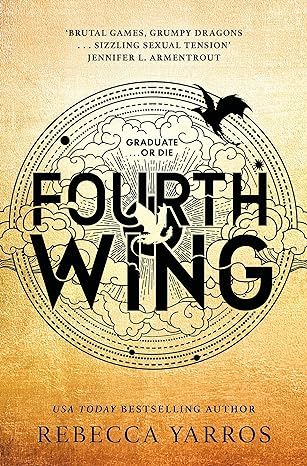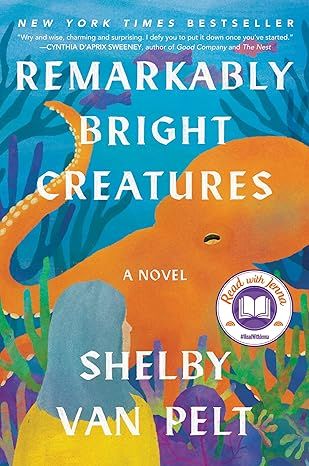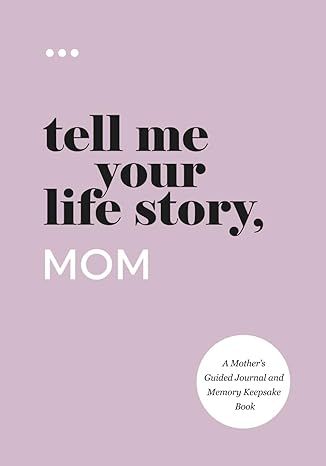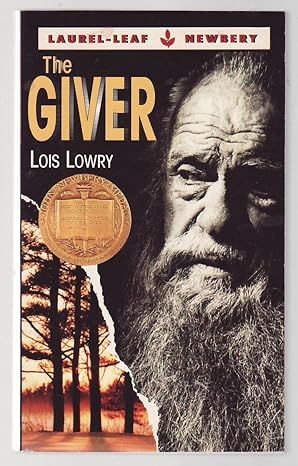The Giver
4.6
-
41,111 ratings
Jonas's world is perfect. Everything is under control. There is no war or fear of pain. There are no choices. Every person is assigned a role in the community. Jonas lives in a seemingly ideal world.
When Jonas turns 12 he is singled out to receive special training from The Giver. The Giver alone holds the memories of the true pain and pleasure of life. Not until he is given his life assignment as the Receiver does Jonas begin to understand the dark secrets behind this fragile community. Now, it is time for Jonas to receive the truth. There is no turning back.
Kindle
$0.00
Available instantly
Audiobook
$0.00
with membership trial
Hardcover
$11.89
Paperback
$17.14
Ships from
Amazon.com
Payment
Secure transaction
ISBN-10
0385732554
ISBN-13
978-0385732550
Print length
208 pages
Language
English
Publisher
Ember
Publication date
January 23, 2006
Dimensions
5.25 x 0.5 x 7.5 inches
Item weight
8 ounces
Popular Highlights in this book
The life where nothing was ever unexpected. Or inconvenient. Or unusual. The life without color, pain, or past.
Highlighted by 7,641 Kindle readers
Two children—one male, one female—to each family unit. It was written very clearly in the rules.
Highlighted by 7,044 Kindle readers
The children all received their bicycles at Nine; they were not allowed to ride bicycles before then.
Highlighted by 6,349 Kindle readers
Product details
ASIN :
B003MC5N28
File size :
27124 KB
Text-to-speech :
Enabled
Enhanced typesetting :
Enabled
X-Ray :
Enabled
Word wise :
Enabled
Editorial Reviews
"A powerful and provacative novel.”-- The New York TimesFrom the Paperback edition.
Sample
Chapter 1
It was almost December, and Jonas was beginning to be frightened. No. Wrong word, Jonas thought. Frightened meant that deep, sickening feeling of something terrible about to happen. Frightened was the way he had felt a year ago when an unidentified aircraft had overflown the community twice. He had seen it both times. Squinting toward the sky, he had seen the sleek jet, almost a blur at its high speed, go past, and a second later heard the blast of sound that followed. Then one more time, a moment later, from the opposite direction, the same plane.
At first, he had been only fascinated. He had never seen aircraft so close, for it was against the rules for Pilots to fly over the community. Occasionally, when supplies were delivered by cargo planes to the landing field across the river, the children rode their bicycles to the river bank and watched, intrigued, the unloading and then the takeoff directed to the west, always away from the community.
But the aircraft a year ago had been different. It was not a squat, fat-bellied cargo plane but a needle-nosed single-pilot jet. Jonas, looking around anxiously, had seen others — adults as well as children — stop what they were doing and wait, confused, for an explanation of the frightening event.
Then all of the citizens had been ordered to go into the nearest building and stay there. IMMEDIATELY, the rasping voice through the speakers had said. LEAVE YOUR BICYCLES WHERE THEY ARE.
Instantly, obediently, Jonas had dropped his bike on its side on the path behind his family’s dwelling. He had run indoors and stayed there, alone. His parents were both at work, and his little sister, Lily, was at the Childcare Center where she spent her after-school hours.
Looking through the front window, he had seen no people: none of the busy afternoon crew of Street Cleaners, Landscape Workers, and Food Delivery people who usually populate the community at that time of day. He saw only the abandoned bikes here and there on their sides; an upturned wheel on one was still revolving slowly.
He had been frightened then. The sense of his own community silent, waiting, had made his stomach churn. He had trembled.
But it had been nothing. Within minutes the speakers had crackled again, and the voice, reassuring now and less urgent, had explained that a Pilot-in-Training had misread his navigational instructions and made a wrong turn. Desperately the Pilot had been trying to make his way back before his error was notice.
NEEDLESS TO SAY, HE WILL BE RELEASED, the voice had said, followed by silence. There was an ironic tone to that finally message, as if the Speaker found it amusing; and Jonas had smiled a little, though he knew what a grim statement it had been. For a contributing citizen to be released from the community was a final decision, a terrible punishment, an overwhelming statement of failure.
Even the children were scolded if they used the term lightly at play, jeering at a teammate who missed a catch or stumbled in a race. Jonas had done it once, had shouted at his best friend, “That’s it, Asher! You’re released!” when Asher’s clumsy error had lost a match for his team. He had been taken aside for a brief and serious talk by the coach, had hung his head with guilt and embarrassment, and apologized to Asher after the game.
Now, thinking about the feeling of fear as he pedaled home along the river path, he remembered that moment of palpable, stomach-sinking terror when the aircraft had streaked above. It was not what he was feeling now with December approaching. He searched for the right word to describe his own feeling.
Jonas was careful about language. Not like his friend, Asher, who talked too fast and mixed things up, scrambling words and phrases until they were barely recognizable and often very funny.
Jonas grinned, remembering the morning that Asher had dashed into the classroom, late as usual, arriving breathlessly in the middle of the chanting of the morning anthem. When the class took their seats at the conclusion of the patriotic hymn, Asher remained standing to make his public apology as was required.
“I apologize for inconveniencing my learning community.” Asher ran through the standard apology phrase rapidly, still caching his breath. The Instructor and class waited patiently for his explanation. The students had all been grinning, because they had listened to Asher’s explanations so many times before.
“I left home at the correct time but when I was riding along near the hatchery, the crew was separating some salmon. I guess I just got distraught, watching them.
“I apologize to my classmates,” Asher concluded. He smoothed his rumpled tunic and sat down.
“We accept your apology, Asher.” The class recited the standard response in unison. Many of the students were biting their lips to keep from laughing.
“I accept your apology, Asher,” the Instructor said. He was smiling. “And I thank you, because once again you have provided an opportunity for a lesson in language. ‘Distraught’ is too strong an adjective to describe salmon-viewing.” He turned and wrote “distraught” on the instructional board. Beside it he wrote “distracted.”
Jonas, nearing his home now, smiled at the recollection. Thinking, still, as he wheeled his bike into its narrow port beside the door, he realized that frightened was the wrong word to describe his feeling, now that December was almost here. It was too strong an adjective.
He had waited a long time for this special December. Now that it was almost upon him, he wasn’t frightened, but he was…eager, he decided. He was eager for it to come. And he was excited, certainly. All of the Elevens were excited about the event that would be coming so soon.
But there was a little shudder of nervousness when he thought about it, about what might happen.
Apprehensive, Jonas decided. That’s what I am.
“Who wants to be the first tonight, for feelings?” Jonas’s father asked, at the conclusion of their evening meal.
It was one of the rituals, the evening telling of feelings. Sometimes Jonas and his sister, Lily, argued over turns, over who would get to go first. Their parents, of course, were part of the ritual; they, too, told their feelings each evening. But like all parents — all adults — they didn’t fight and wheedle for their turn.
Nor did Jonas, tonight. His feelings were too complicated this evening. He wanted to share them, but he wasn’t eager to begin the process of sifting through his own complicated emotions, even with the help that he knew his parents could give.
“You go, Lily,” he said, seeing his sister, who was much younger — only a Seven — wiggling with impatience in her chair.
“I felt very angry this afternoon, “ Lily announced. “My Childcare group was at the play area, and we had a visiting group of Sevens, and they didn’t obey the rules at all. One of them — a male; I don’t know his name — kept going right to the front of the line for the slide, even though the rest of us were all waiting. I felt so angry at him. I made my hand into a fist, like this.” She held up a clenched fist and the rest of the family smiled at her small defiant gesture.
“Why do you think the visitors didn’t obey the rules?” mother asked.
Lily considered, and shook her head. “I don’t know. They acted like…like…”
“Animals?” Jonas suggested. He laughed.
“That’s right, “ Lily said, laughing too. “Like animals.” Neither child knew what the word meant, exactly, but it was often used to describe someone uneducated or clumsy, someone who didn’t fit in. “Where were the visitors from?” Father asked.
Lily frowned, trying to remember. “Our leader told us, when he make the welcome speech, but I can’t remember. I guess I wasn’t paying attention. It was from another community. They had to leave very early, and they had their midday meal on the bus.”
Mother nodded. “Do you think it’s possible that their rules may be different? And so they simply didn’t know what your play area rules were?”
Lily shrugged, and nodded. “I suppose.”
“You’ve visited other communities, haven’t you?” Jonas asked. “My group has, often.”
Lily nodded again. “When we were Sixes, we went and shared a whole school day with a group of Sixes in their community.”
“How did you feel when you were there?”
Lily frowned. “I felt strange. Because their methods were different. They were learning usages that my group hadn’t learned yet, so we felt stupid.”
Father was listening with interest. “I’m thinking, Lily,” he said, “about the boy who didn’t obey the rules today. Do you think it’s possible that he felt strange and stupid, being in a new place with rules that he didn’t know about?”
Lily pondered that. “Yes,” she said, finally.
“I feel a little sorry for him,” Jonas said, “even though I don’t even know him. I feel sorry for anyone who is in a place where he feels strange and stupid.”
“How do you feel now, Lily?” Father asked. “Still angry?”
“I guess not,” Lily decided. “I guess I feel a little sorry for him. And sorry I made a fist.” She grinned.
Jonas smiled back at his sister. Lily’s feelings were always straightforward, fairly simple, usually easy to resolve. He guessed that his own had been, too, when he was a Seven.
He listened politely, though not very attentively, while his father took his turn, describing a feeling of worry that he’d had that day at work: a concern about one of the new children who wasn’t doing well. Jonas’s father’s title was Nurturer. He and the other Nurturers were responsible for all the physical and emotional needs of every new child during its earliest life. It was a very important job, Jonas knew, but it wasn’t one that interested him much.
“What gender is it?” Lily asked.
“Male,” Father said. “He’s a sweet little male with a lovely disposition. But he isn’t growing as fast as he should, and he doesn’t sleep soundly. We have him in the extra care section for supplementary nurturing, but the committee’s beginning to talk about releasing him.”
“Oh, no,” Mother murmured sympathetically. “I know how sad that must make you feel.”
Jonas and Lily both nodded sympathetically as well. Release of newchilden was always sad, because they hadn’t had a chance to enjoy life within the community yet. And they hadn’t done anything wrong.
There were only two occasions of release which were not punishment. Release of the elderly, which was a time of celebration for a life well and fully lived; and release of a newchild, which always brought a sense of what-could-we-have-done. This was especially troubling for the Nurturers, likeFather, who felt they had failed somehow. But it happened very rarely.
“Well,” Father said, “I’m going to keep trying. I may ask the committee for permission to bring him here at night, if you don’t mind. You know what the night-crew Nurturers are like. I think this little guy needs something extra.”
“Of course,” Mother said, and Jonas and Lily nodded. They had heard Father complain about the night crew before. It was a lesser job, night-crew nurturing, assigned to those who lacked the interest or skills or insight for the more vital jobs of the daytime hours. Most of the people on the night crew had not even been given spouses because they lacked, somehow, the essential capacity to connect to others, which was required for the creation of a family unit.
“Maybe be could even keep him,” Lily suggested sweetly, trying to look innocent. The look was fake, Jonas knew; they all knew.
“Lily,” Mother reminded her, smiling, “you know the rules.”
Two children — one male, one female — to each family unit. It was written very clearly in the rules.
Lily giggled. “Well,” she said, “I thought maybe just this once.”
Next, Mother, who held a prominent position at the Department of Justice, talked about her feelings. Today a repeat offender had been brought before her, someone who had broken the rules before. Someone who she hoped had been adequately and fairly punished, and who had been restored to his place: to his job, his home, his family unit. To see him brought before her a second time caused her overwhelming feeling of frustration and anger. And even guilt, that she hadn’t made a difference in his life.
“I feel frightened, too, for him,” she confessed. “You know that there’s no third chance. The rules say that if there’s a third transgression, he simply has to be released.” Jonas shivered. He knew it happened. There was even a boy in has group of Elevens whose father had been released years before. No one ever mentioned it; the disgrace was unspeakable. It was hard to imagine.
Lily stood up and went to her mother. She stroked her mother’s hair.
From his place at the table, Father reached over and took her hand. Jonas reached for the other.
One by one, they comforted her. Soon she smiled, thanked them, and murmured that she felt soothed.
The ritual continued. “Jonas?” Father asked. “You’re last, tonight.”
Jonas sighed. This evening he almost would have preferred to keep his feelings hidden. But it was, of course, against the rules.
“I’m feeling apprehensive,” he confessed, glad the appropriate descriptive word had finally come to him.
“Why is that, son?” His father looked concerned.
“I know there’s really nothing to worry about,” Jonas explained, “and that every adult has been through it. I know you have, Father, and you too, Mother. But it’s the Ceremony that I’m apprehensive about. It’s almost December.”
Lily looked up, her eyes wide. “The Ceremony of Twelve,” she whispered in an awed voice. Even the smallest children Lily’s age and younger -knew that it lay in the future for each of them.
“I’m glad you told us of your feelings,” Father said.
“Lily,” Mother said, beckoning to the little girl, “go on now and get into your nightclothes. Father and I are going to stay here and talk to Jonas for a while.”
Lily sighed, but obediently she got down from her chair. “Privately?” she asked.
Mother nodded. “Yes,” she said, “this talk will be a private one with Jonas.”
Read more
About the authors
Lois Lowry
Lois Lowry is known for her versatility and invention as a writer. She was born in Hawaii and grew up in New York, Pennsylvania, and Japan. After studying at Brown University, she married, started a family, and turned her attention to writing. She is the author of more than forty books for young adults, including the popular Anastasia Krupnik series. She has received countless honors, among them the Boston Globe-Horn Book Award, the Dorothy Canfield Fisher Award, the California Young Reader's Medal, and the Mark Twain Award. She received Newbery Medals for two of her novels, NUMBER THE STARS and THE GIVER. Her first novel, A SUMMER TO DIE, was awarded the International Reading Association's Children's Book Award. Several books have been adapted to film and stage, and THE GIVER has become an opera. Her newest book, ON THE HORIZON, is a collection of memories and images from Pearl Harbor, Hiroshima, and post-war Japan. A mother and grandmother, Ms. Lowry divides her time between Maine and Florida. To learn more about Lois Lowry, see her website at www.loislowry.com
Read more
Reviews
Customer reviews
4.6 out of 5
41,111 global ratings
Tigerlily64
5
A Futuristic Society, Engrossing And Thought-Provoking
Reviewed in the United States on July 11, 2015
Verified Purchase
What is the ideal society that you can imagine? Would you like to be happy? Does a society with no war, no disease, no pain or suffering appeal to you? Would you like to have someone else choose a very compatible mate for you and not have to worry about dating? How would you like a job that is guaranteed and is enjoyable and fits your interests and personality? The Giver is about such a society. What is the trade-off? What is missing in the people’s lives? The Giver is a very thought-provoking book.
Jonas lives in this community. His thought his childhood was delightful. However, at age 12, he knows he will be assigned a job. He is apprehensive about the prospect. What does he really want to do? He is not sure. Everyone in the community is assigned an occupation that suits his or her abilities. In a special ceremony, children who turn 12 years old in a given year are grouped together. He sits in the auditorium and watches and listens as all the other children in his age group are assigned jobs. Jonas is the only one left without an assignment. Is something wrong?
At the end of the ceremony, he is finally called up and told he is to be a “Receiver”. This is the highest honor. He is to be trained by the Giver. The Giver is the only one in the society that has any sense of history; he is the depository of memories. The others live only in the present. The Giver is to transfer his memories of the human race to Jonas, for the Giver is old and tired and needs to be replaced.
This society is one of conformity. “Sameness” is fostered and rewarded. All the houses are identical. Haircuts, dress and activities are strictly regimented. Everyone sees grayness; no one even sees colors. Only the separate job assignments differentiate the members. They are told how to act; they are told how to live. Everyone takes a pill to keep all passion at bay. Only superficial discussions of one’s feelings are allowed; only certain feelings are appropriate. The people know vaguely about “Elsewhere”, the outside world, but they stay in the Community and do as they are told.
When Jonas starts receiving memories from the Giver, he experiences pain and suffering but also love and freedom of choice. He also begins to see the world in color. He is told he can lie about his training and not tell anyone what he is experiencing. Jonas is careful of what he says at home now. When he is asked if he dreams, he says “no”, because his dreams would not be acceptable. He does not tell them that he has stopped taking the pill to suppress passion. His feelings and emotions grow, and he tries to hide these from his family and the others in the Community. The Giver is the only person who knows what he is going through.
Jonas thinks the other people in the Community tell the truth about their jobs. Then one day, the Giver allows him to watch a video recording of his father at work with his job taking care of infants. Jonas had always thought his Dad liked the infants that were in his care. This view was reinforced since his father brought home an infant named Gabriel who needed some extra care. Gabriel was not learning to sleep through the night; he was different than the other infants in the ward. If he did not learn to sleep through the night he would be RELEASED. Jonas soothes the boy to sleep by acting as Giver and sending the child peaceful thoughts. The child does not sleep when he is in the new infant ward, however. Jonas learns that Gabriel is to be RELEASED.
In the infant ward, twins have been born. Twins are not allowed in the Community. Only one of the twins can be kept. The other is be RELEASED. Jonas watches as his father weighs each of the twins and sets aside the smaller of the two. Then his father calmly injects the smaller twin in the head with a lethal chemical. The boy dies. Jonas is devastated. He had always looked up to his father. Jonas now knows what RELEASED means. He had thought that those who were RELEASED, including the disabled and the elderly went to a heavenly place in another community. Jonas now knows that RELEASED means death. Shocked and scared, Jonas knows that his father has been lying to everyone about what he does. Is everyone lying about his or her work?
Jonas is disillusioned and decides to leave the Community, something that is forbidden. He realizes that the Community is a horrible place; it is a dystopia, not a Utopia. Jonas hoards some leftover food (all leftover food must be put out in front of each house) and prepares for the right opportunity. The Giver helps him escape. He escapes with Gabriel and is pursued by helicopters. Freezing and nearly starving, they reach a hill and look down upon a lit up house below. A family is sitting cozily in a living room with a lovely Christmas tree. The scene is a memory that Jonah had received from the Giver. Is this real or is it just a memory? Are Jonah and Gabriel safe in “Elsewhere” or are they dead?
What information is kept from us in today’s world? It is easy to see distortions of truth in our media. Misinformation is spread rapidly though the Internet as well as television, and, probably, our newspapers. We see many different cultures in the world, and they all have their version of reality.
Medical doctors often give tranquilizers and antidepressants to dull patients’ emotions. There is some parallel here to the pill that every 12 year-old child in the Community must start to take daily to get rid of passionate feelings. Does not great art and music need passion and intense feelings to be inspired?
Read more
93 people found this helpful

Bobby Winters
5
The Giver
Reviewed in the United States on June 28, 2003
Verified Purchase
I've grown fond of children's books. We take better care of our children than we do ourselves. We encourage our children to eat their vegetables whether we do ourselves or not. We encourage them to play outside whether we exercise or not. We care about what they are allowed to read, while we read trash. We should be concerned about what our children read. Reading is an intimate experience. When we read, we let someone else come inside our brains, walk around, and leave things. Sticks and stones can break your bones, but books can change the way you think. We are right to care about the sorts of things our children invite into their minds, and this concern has led to a children's literature that's better in many respects than what is supposed to be "adult" literature. I was converted to children's books in stages, as my children started being interested in reading, but the final step-the icing on the cake-was a book entitled The Giver, by Lois Lowry. It can be read in a few hours, but that does not decrease its impact, which is something like that of a sledgehammer. It is the story of a boy named Jonas who lives in what seems to be an ideal world. There is no crime, no hunger, and no dissatisfaction. Everyone is in the profession that best suits his talents. It appears to be ideal. The Greeks had a word for a place like this, and that word was "Utopia". It shows the keen insight of those old Greeks that the word means "nowhere". Nowhere is perfect. Nowhere is without problems. While the Community in which Jonas lives is without strife, it also lacks a great many other things. On the way to achieving the "perfect" community, certain sacrifices have been made. Jonas discovers this when he turns twelve and is assigned his life profession, The Receiver of Memories. Part of the price paid for utopia is loss of connection to the past. The children of the Community are not raised by their biological parents, but by foster parents who are deemed suitable for the job of parenting. After the children of the community are grown, they lose connection with their foster parents, so even family history is lost. One might think about the impact this would have on the situation in the Middle East. There wouldn't be any fighting for the Promised Land. The Promise would all be a part of the forgotten past. For those of us who would like to see peace, this notion might be quite appealing. However, Lowry's insight is that a person without a past is a person without a future. While there is virtue to be had by living in the present in the metaphorical sense, living entirely in the present without connection to the Eternal is sterile. Jonas's role as Receiver of Memory is necessary for the Community because basic survival does require some knowledge of the human past, but this knowledge is a great burden, as human history is full of pain. The Receiver of Memory remembers these unpleasant things so others won't have to. The decision was made to remove this unpleasantness from the Community's conscience. In reading this, I was reminded that some people shudder at the bloody passages in the Old Testament and regret their inclusion in the Bible. Sometimes fiction is not far from the truth. But in forgetting pain, much that was pleasant has also been forgotten: Snow, sunny days, and the love of a family. Bad weather is inconvenient, and so the weather is controlled. Sexual yearnings cause problems, and so they are eliminated by taking a pill. Even love has been removed. This brings up another theme of the book, the use of language. Children are continually urged to use language precisely. Once Jonas asks his foster father if he loves him and is told that love is a meaningless word. His foster father says that he is very fond of Jonas, but that he couldn't possibly love him because there is no such thing. Yet we, the reader, know that there is such a thing, and in the course of gaining the memories of the community, Jonas discovers not on does love exists, but that he is capable of it in its deepest form. Though there is never an explicit reference to religion, one might almost see The Giver as sequel to the story of the Fall of Man in the book of Genesis. In eating from the Tree of Knowledge, Man is separated from nature and separated from God. Mans knowledge of the universe and how to manipulate it enables him to control. The world shown in The Community in The Giver is one that logically follows from that separation. The Community controls everything, the weather, and the sexual urges of the young. The separation from nature is complete, and perhaps so is the separation from God. The theologians have a name for the complete separation from God, and that name is "Hell." Hell is not usually presented as being so clean as the Community, nor its people as being so polite, but somehow I do believe that, like the Community, Hell is made-to-order by man. The most frequent complaint that one sees about the book is about its ending. It would be an understatement of massive proportions to say that my twelve-year-old, the Middle-Child, found the ending to be very frustrating. However, it need not be if one takes it at face value, and that is all I am going to say. The next time you would like a good, short read, and if you are tired of being force-fed someone else's sexual fantasies, let me recommend The Giver. If nothing else, it will make you think.
Read more
57 people found this helpful
Nikki Tâ
5
Powerful Reflection of Today's World
Reviewed in the United States on February 29, 2024
Verified Purchase
In Lois Lowry's seminal work, "The Giver," the reader is not merely presented with a narrative; they are invited into a profound exploration of societal constructs and the human condition. Lowry's narrative unfolds within a dystopian world meticulously crafted to reflect the complexities and nuances of contemporary society.
At its core, "The Giver" serves as a poignant commentary on the dangers of conformity and the erosion of individuality in the face of authoritarian control. Through the lens of the protagonist, Jonas, Lowry masterfully illustrates the perils of a society governed by stringent rules and the suppression of personal freedoms. Jonas's journey from naivety to enlightenment serves as a powerful allegory for the awakening of societal consciousness—a journey many find themselves undertaking in today's world.
The theme of mind control permeates the narrative, serving as a chilling reminder of the dangers inherent in relinquishing critical thought to authority. Lowry's portrayal of a world where emotions are suppressed and individuality is sacrificed at the altar of conformity resonates deeply with contemporary discourse surrounding mass media manipulation and the homogenization of culture.
Furthermore, "The Giver" offers a stark indictment of the tendency to isolate and categorize individuals based on arbitrary criteria. Lowry's depiction of a society where individuals are labeled and compartmentalized speaks volumes about the dangers of reducing human complexity to simplistic labels—a phenomenon all too prevalent in contemporary discourse.
In essence, "The Giver" serves as a mirror reflecting the triumphs and tribulations of modern society. Through its vivid imagery and thought-provoking narrative, Lowry implores readers to question, to challenge, and to resist the forces that seek to mold us into conformity. It is a testament to the enduring power of literature to provoke introspection and inspire change—a timeless masterpiece that continues to resonate with readers across generations.
Read more
15 people found this helpful
Amazon Customer
5
perfect world that shuns individuality
Reviewed in the United States on March 16, 2016
Verified Purchase
The Giver is a children’s literature novel written by Lois Lowry. It takes place in a monotone, perfect world that shuns individuality. Jonas, the hero that is followed throughout the story, begins to notice the true imperfection of the world he lives in. He is accompanied by a man who is only known as “the Giver.” It's amazing what The Giver has to offer the children that have read it. It is a book that is, in a way, simple in its complexity. Simple in the aspect that a child can be exposed to it and still understand the basic plot and foundation; Complex in the aspect that an adult can be exposed to it and be able to analyze the true meaning and theme that is hidden beneath its surface. Jonas really questions what individuality truly is. The truth is uncovered to him by the Giver that humans are afraid of being subjected to peculiar situations. When Jonas talks about releasing one of the twins that were recently born with the Giver, he exclaims, “Well, they can't have two identical people around! Think how confusing it would be!" (182). It would be easier for one of the twins to be released then for everyone to be possibly subjected to awkward situations such as mixing up two people that look identical to each other. Another example for this theme would be how everyone is required to accept one another's apologies. The thought behind this is that if someone does not accept your apology, it can lead to future skirmishes. No body likes to be caught in a situation where they are trying to mend a relationship between two people, so it's easier for everyone to be uniform and friendly. It is more comfortable. Comfortable is a key element in this novel. Lowry does an amazing job of exposing human nature. Everyone hates being singled out, put in awkward situations, and just simply being different. By making everyone uniform, same number of people in the house, we all act the same, wear the same clothes, it minimizes suffering. In no way can suffering be totally and utterly eliminated, there will still be things that irritates people individually. What Lowry enforces through her protagonist Jonas is that if there is minimal suffering, then there is minimal happiness. No one is truly depressed, but no one is truly happy either. When having dinner with his family and everyone was sharing their emotions of the day, Jonas had experienced sadness first hand, and realized that all the “emotions” everyone spoke of during dinner were fleeting feelings that held no true meaning: “But now Jonas had experienced real sadness. He had felt grief. He knew there was no quick comfort for emotions like those” (166). Jonas came to the conclusion that no one truly new what raw emotion was, only himself and the Giver. No body could truly love, hate, or feel sadness. He began to realize how empty his society profoundly was. In conclusion, this novel was amazing. Lowry does a fantastic job by setting a sober tone for a novel that explores the theme of humanity's natural fear of individuality. Though there is no true physical conflict, the true problem lies within the society itself. While a very good book for adults, it is also a true masterpiece for its intended audience, children. If ever taught in a classroom setting, a fun way to incorporate the book into activities would be for children to pair up into groups and assign them to create a utopia of their own. A way to expand this assignment would be for the children to write their own dystopian fiction with plot, character, and theme. Questions such as: Can there ever be a true utopia? Are humans naturally flawed, leading to the conclusion that all society is imperfect? Can be addressed. This can be also seen as a lesson plan, incorporating other books that are similar to The Giver, such as The City of Ember, written by Jeanne DuPrau, and The Roar, written by Emma Clayton. Both which are dystopian themed novels that are aimed toward children. If students are having difficulty interpreting the text or understanding it two great sites would be: randomhouse or loislowry.com. For teachers who need lesson plans or activities that pair well with the novel these two sites are very informative: englishunitplans or webenglishteacher.com. This book was overall incredible and I'm glad that I was able to read it, even if it is classified as children’s literature!
Works Cited Lowry, Lois. The Giver. New York: Houghton Mifflin, 1993. Print.
Read more
19 people found this helpful

Candace ~ Book Addict Haven
4
Spectacular Book for All Ages
Reviewed in the United States on January 7, 2017
Verified Purchase
Yesterday, I took a road trip with my two daughters to get pick up my 88 year-old grandmother, who will be staying with us through the holiday season. At 5 and 9 years-old, my usual audiobook choices were clearly not an option. So, I found myself listening to some books that definitely are not my usual type, yet again.
With over 4 1/2 hours in the car each way, we were able to finish 2 audiobooks from start to finish. By pure coincidence, they both ended up being authored by Lois Lowry. I have never been more engaged in a children's book than I was during this road trip. I was completely lost in these stories, as were my children.
The first book that we listened to was 'The Giver'. What a captivating, albeit bleak, fictional world Ms. Lowry has created! I was absolutely spellbound by her storytelling.
Set in the future, Jonas lives in a community that has traded their humanity for the illusion of safety. They block anything that would trigger the emotional highs and lows that define a person's life as we now know it. They don't experience the heartache of loss, but they never give in to the joys of life either. They are shells, robotic in their day to day existence and devoid of emotion.
Although this is a children's book, it had a feeling eerily similar to George Orwell's '1984'. Independent thinking was non-existent. People "confessed" their thoughts, dreams and rule violations. The presence of the omnipresent leaders in their homes, ruling their lives, was pervasive and all-powerful.
Jonas is getting ready to experience the ceremony of 12. This particular ceremony is an important one in the community, a rite of passage into adulthood. It is at this ceremony that each child is assigned their job within the community. They will remain in their assigned role until they are no longer productive and they are "released".
Unlike the other children, Jonas is unsure of his calling within the community. He doesn't feel a clear draw to one occupation or another. He is worried of what the future holds for him and he is beginning to notice some unusual things that others do not.
Jonas is ultimately assigned a very prestigious role within the community. It is perhaps the most important role in the community, but comes with a tremendous burden. He cannot share his experiences with anyone other than the man that he will be replacing, the current "receiver". As his training progresses, Jonas comes to question everything that he has ever been taught.
From beginning to end, this book held my rapt attention. It was beautifully written and thought provoking. 'The Giver' serves as a cautionary tale to the human race, warning of what can become when we censor our very emotions and blot out all of the differences that make us unique individuals.
There was plenty of action and suspense along the way. It was also a much more emotional read than I had anticipated. I'll never forget the look on my 9 year-old's face when some of the true meanings of different phrases, like "released", truly sunk in. Don't even get me going on baby Gabe! Luckily, I think most of that went over the head of my 5 year-old.
Overall, I thought that this was a spectacular book! It is one that I would not have normally read, but I'm so glad that I did. I can only hope that the lessons learned will resonate with my daughter and the other children that read it. An all-around great story! I'll probably download the next books in the series for our next road-trip to take "Nana" home after the holidays.
Read more
154 people found this helpful
Best Sellers

The Great Alone: A Novel
4.6
-
152,447
$5.49

The Four Winds
4.6
-
156,242
$9.99

Winter Garden
4.6
-
72,838
$7.37

The Nightingale: A Novel
4.7
-
309,637
$8.61

Steve Jobs
4.7
-
24,596
$1.78

Iron Flame (The Empyrean, 2)
4.6
-
164,732
$14.99

A Court of Thorns and Roses Paperback Box Set (5 books) (A Court of Thorns and Roses, 9)
4.8
-
26,559
$37.99

Pretty Girls: A Novel
4.3
-
88,539
$3.67

The Bad Weather Friend
4.1
-
34,750
$12.78

Pucking Around: A Why Choose Hockey Romance (Jacksonville Rays Hockey)
4.3
-
41,599
$14.84

Start with Why: How Great Leaders Inspire Everyone to Take Action
4.6
-
37,152
$9.99

Tomorrow, and Tomorrow, and Tomorrow: A novel
4.4
-
95,875
$13.99

Weyward: A Novel
4.4
-
27,652
$11.99

Tom Lake: A Reese's Book Club Pick
4.3
-
37,302
$15.74

All the Sinners Bleed: A Novel
4.4
-
12,894
$13.55

The Mystery Guest: A Maid Novel (Molly the Maid)
4.3
-
9,844
$14.99

Bright Young Women: A Novel
4.2
-
8,485
$14.99

The Wager: A Tale of Shipwreck, Mutiny and Murder (Random House Large Print)
4.5
-
28,672
$14.99

Hello Beautiful (Oprah's Book Club): A Novel (Random House Large Print)
4.4
-
79,390
$14.99

Small Mercies: A Detective Mystery
4.5
-
16,923
$10.00

Holly
4.5
-
31,521
$14.99

The Covenant of Water (Oprah's Book Club)
4.6
-
69,712
$9.24

Wellness: A novel
4.1
-
3,708
$14.99

The Art Thief: A True Story of Love, Crime, and a Dangerous Obsession
4.3
-
4,805
$14.99

The Berry Pickers: A Novel
4.5
-
14,209
$14.99

Elon Musk
4.7
-
15,272
$16.99

Just for the Summer
4.6
-
19,524
$11.99

Fourth Wing (International Edition)
4.8
-
206,495
$7.95

Remarkably Bright Creatures: A Read with Jenna Pick
4.6
-
65,556
$15.80

Tell Me Your Life Story, Mom: A Mother’s Guided Journal and Memory Keepsake Book (Tell Me Your Life Story® Series Books)
4.7
-
5,107
$11.24

